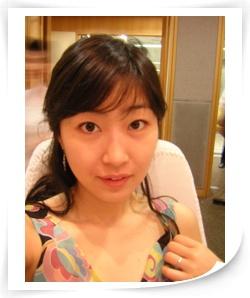Profile on Lee Young-hun, reform-minded chief justice of Korean Supreme Court
He was sworn in as the 14th chief justice of the South Korean Supreme Court on September 25, 2005.
At the Inauguration ceremony, he said:
“in the decades of dictatorship and authoritarian regimes, the judiciary has not maintained its independence from political pressures nor served as the last stronghold of human rights protection. All jurists deplore the concerns and scars we have caused the Korean public.”
“The court system could not perform its full legal roles throughout the colonial period, the war and associated period of division. We have a bereaved history of dictatorship and authoritarianism during which the court lost his independence and was not able to perform its full responsibilities as the final safeguard of human rights.”
“I will look only at the citizens, and devote myself to serving the citizens.”
“My calling is to bridge the gulf that exists between the citizens and the court system, to return the court to one that is devoted to the citizens’ cause.”
“I will boldly get rid of antiquated systems and practices to create a legal system that is convenient and practical from the citizen’s point of view.”
Lee spoke of his deep regret concerning the history of authoritarianism in Korea and promised “a fresh start for the judiciary.”
“Above all, it needs the courage to confess past mistakes frankly to restore lost public confidence in the judiciary.”
During the National Assembly Hearing, he said:
“If a Supreme Court chief justice cannot retain neutrality, then he does not have the right to be in that position.”
Question on his relationship with President Roh, “I have not met the president outside of the impeachment trial.”
On the subject of court reform, “in truth, the court doesn’t have any power, as it is only a place for trials, But checking the court system can harm the independence of the court.”
To the question on the type of philosophy that has guided his time as a court justice who has served for more than 40 years, “I have always pondered the way to make the most reasonable judgment.”
With regard to his stance upon President Roh’s proposal to nullify the statute of limitations in criminal cases to enable retroactive punishment for wrongdoings in the past, “It is conventional for the court to make future-oriented decision. Problems of the past should be discussed in the National Assembly.”
Regarding judicial intervention, “the court should actively intervene when citizens request it. To make the judicial system easily accessible to the citizens is an important agenda.”
Question about the proper limits of carrying out investigations without a warrant, he answered that such cases much be prevented and emphasized the importance of carrying out prudent arrests. “Behind every arrest is a family’s blood and tears,” he said as he mentioned his past experience as criminal prosecutor advising his juniors to make as few arrests as possible.
On September 13, 2006, he said :
“Most documents prepared by lawyers are the ones that play upon word aimed at trick people.
“There is a word ‘three judicial wheels’, but I think the judiciary is the center, and the prosecution and lawyers are supporters to help the judiciary move smoothly, and these are not the same wheel.”
On September 18, 2006, he said :
“Judges issue arrest warrant without proper consideration. They should recognize the reality that issuing an arrest warrant drives people who gets arrested and their family members into a catastrophe. You know, heads of family are arrested and their family members are put into crisis.”
“Why do they issue an arrest warrant given arrest people will be released after review of legality for confinement, or by stay of execution only a month later?”
On September 19 2006, he said :
“How come is it that prosecutor’s written statement which they unofficially received from a suspect in a closed dark room is treated as same as the oral statement in a court?”
“In a civil lawsuit, if the court is to have proper court proceeding, it should throw away prosecutor’s investigation documents.”
Aged 63, he passed the bar in 1962 and worked as a prosecutor from 1968 to 1992. He established his own law firm in 2000, working as a lawyer taking 472 cases, most of them Supreme Court cases, before he was sworn in as Supreme Court chief justice.
He defended President Roh during the presidential parliamentary impeachment trials in 2004.
People close to him describe him as being “a person with no compromise to his principle,” “a judge who always speaks his mind,” and “a lawyer who is not content with just comfortable life.” Personally he is known to be very warm, free and easy.
Under Chun Doo-hwan dictatorship, he disobeyed the government’s asking to sentence a person who was arrested for political reason two years in prison, and afterwards he had been excluded from any political court cases until Chun’s term was over. At that time he ordered 6 months in prison instead of 2 years.


0 Comments:
Post a Comment
Subscribe to Post Comments [Atom]
<< Home